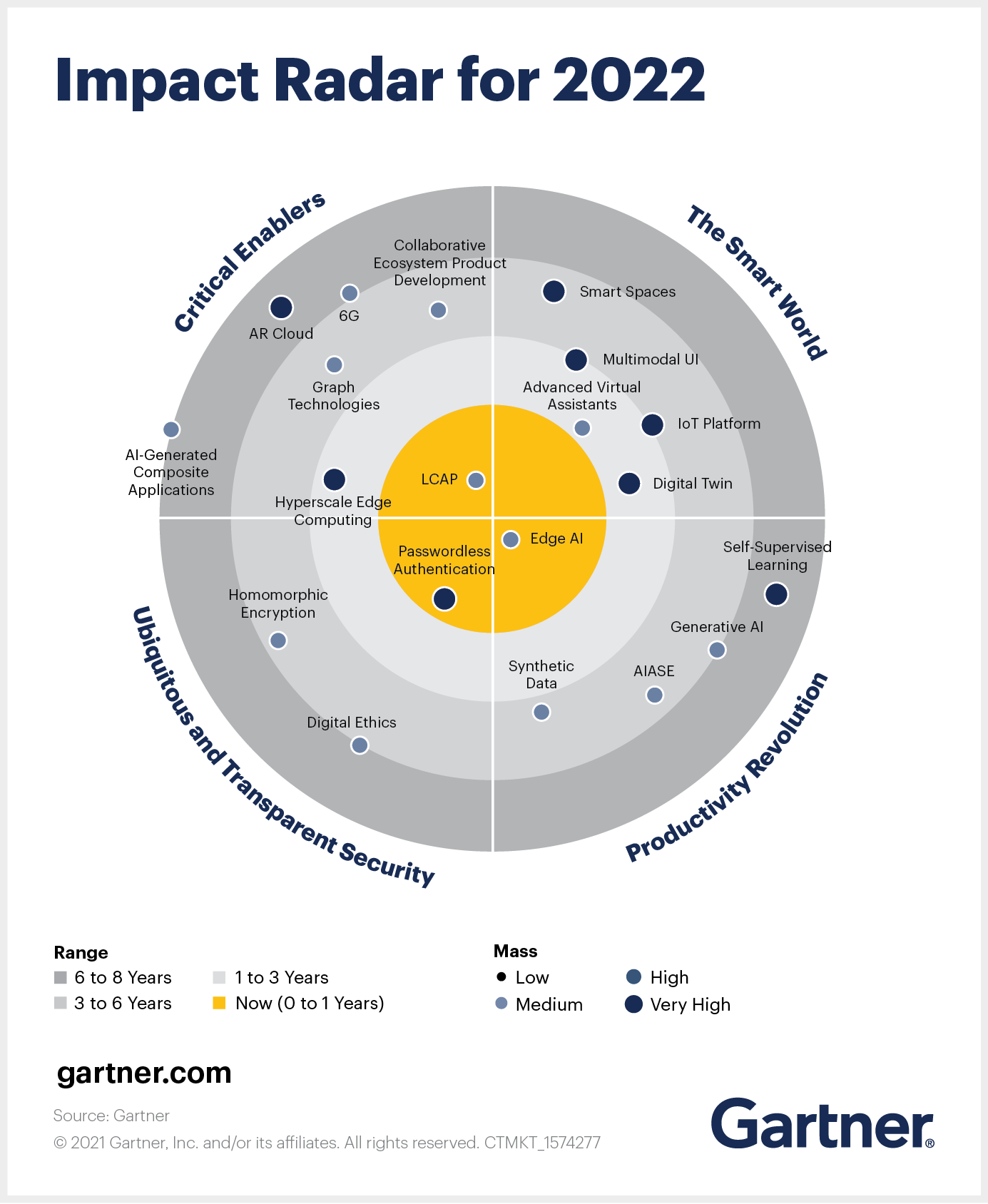In our last blog, post we discussed The Rise of Intelligent Edge Devices with AI Acceleration and most people would assume it is quite a specialized field for AI experts. It is, but at the same time, AI development is becoming more common and enabled for anyone without the need for data science or Deep Learning background. The democratization of AI and Low-Code / No-Code solutions was a trend we observed in 2021 and also listed in our Top 10 list for 2022 as the growth is continuing at a high pace.
In this article, we’ll continue the 2022 #SummerofAI series and we will cover the importance of citizen data scientist these days and how anyone can even become a pro programmer with the help of an AI developer assistant.
Citizen Data Scientist on the rise
The democratization of AI is happening in a transformational character, meaning it will impact many industries and change how work is done. Citizen data science is an example in which domain experts use easy-to-use data science tools without the need for prior data science knowledge. This enables domain experts with years of experience and domain expertise in their field to create valuable AI solutions at a speed rivaling that of any data scientist having to learn the domain. All without the steep learning curve of data science. This pre-existing expertise not only increases the viability, speed to market, and ROI of the resulting solution, but also allows organizations to leverage rare data scientist resources on more complex problems. The Machine Learning engineers could be building brand new AI model architectures that can then be leveraged by the domain experts via a Low-Code Application Platform (LCAP) which Gartner lists at the center of maturity.
The demand for developers and other technology-related jobs is growing and is not going to stop soon, in particular in AI and data science. LinkedIn’s 2022 emerging job report is listing Machine Learning Engineer as #4 of the 25 fastest-growing job titles over the past five years. With this rate of increase, it will be hard to find enough specialists with the necessary skillsets to fill the demand. Low-code and no-code AI tools empower organizations to close the gap with the help of their existing workforce / domain experts becoming citizen data scientist that will only require AI experts for very specific scenarios.
For Business leaders, it’s important to stay on top of these trends and encourage their workforce like domain-experts, design, and development teams to evaluate AI tools and explore how they can be integrated into their workflows in a sustainable and responsible manner.

Figure 1: Gartner Emerging Technologies Trend Impact Radar with Low-Code Application Platform (LCAP) at the center of maturity. (Source: Gartner article, https://www.gartner.com/en/articles/5-impactful-technologies-from-the-gartner-emerging-technologies-and-trends-impact-radar-for-2022, 8 December 2021 ) GARTNER is a registered trademark and service mark of Gartner, Inc. and/or its affiliates in the U.S. and internationally and is used herein with permission. All rights reserved.
Microsoft’s AI solutions and How may A.I help you?
Microsoft is heavily investing into their AI stack on all frontiers, starting from services aimed for data scientists and ML engineers, all the way up to consumer facing tools like Word and PowerPoint with its AI-powered PowerPoint Designer. In-betweens are also lots of offerings like Azure Cognitive Services which provide a wide range of services bringing AI within the reach of every developer without any prior machine learning expertise. Microsoft’s low-code / no-code Power Platform allows anyone to easily create custom applications to create apps like chatbot virtual agents, Power BI analytics solutions and much more. Even custom models created with Lobe.ai can now be used with the Power Platform. We covered Lobe.ai with a custom example in our 2021 Democratization of AI post and were very impressed by its capabilities with an easy-to-use UI.
If you want to learn more about Azure Cognitive Services, other Microsoft AI services and related topics check out Liji’s new video series “How may A.I help you?” where she is covering all of this in an approachable way.
AI Developer Assistant
AI-Augmented Development was recently enabled for everyone, thanks to the general availability of GitHub’s Co-Pilot. Co-Pilot is built on the OpenAI Codex system that was trained on billions of lines of public source code. Integrated into the Visual Studio Code Editor, Co-Pilot provides suggestions for code lines or even entire functions from code comments or the general context. It is very impressive already as can be seen in the demo video below and helps even experienced programmers with AI-assisted co-development to get their work done faster, in particular for certain mundane coding tasks.
AI models like Codex enable such tooling but it’s not just the only use case. It can also be used to automatically modernize an old code base. For example, COBOL or Fortran code can be transformed into C++, Rust or another more modern language with these AI models. Let’s be clear, these systems are not just performing a simple 1:1 translation but are actually taking the AI learned specifics of the language and domain into account during the transformation.
The demand for data scientists, ML engineers, and intelligent solutions requiring specialized skills is still on the rise, but there is a lack of skilled personnel. The wide range of options in the market providing a democratization of AI with low-code and no-code development empowers everyone today for creating intelligent solutions with domain specific customization. Steering through the vast number of options and choosing the best approach is not easy, but we are here to help! If you are ready to build your own customized AI solutions with us or want to learn more, Valorem Reply’s Data & AI team can help you to reach your goals quickly and efficiently. Reach out to us as marketing@valorem.com to schedule time with one of our industry experts.
